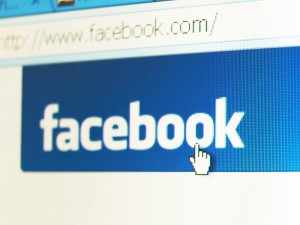 About 13 million Facebook users in the United States either do not use or do not know about the social network's privacy controls, sharing private information they would not have otherwise. This amounts to one out of every 10 users in the country.
About 13 million Facebook users in the United States either do not use or do not know about the social network's privacy controls, sharing private information they would not have otherwise. This amounts to one out of every 10 users in the country.
Consumer Reports' study of what we are posting on Facebook should give pause to chronic oversharers. For example, 4.8 million posted publicly where they were going for a day, possibly tipping off a burglar to an empty house; 4.7 million liked a page on a specific health condition or treatment for a disease, which may pique the interest of a prying health insurer.
"Facebook really is changing the way the world socially communicates and has become a successful service in part by leveraging copious amounts of personal data that can be spread far wider than its users might realize", the publication's technology editor Jeff Fox says.
Poor choices and ignorance are the biggest issues when it comes to Facebook privacy. Right now is a good time to check that your own settings are such that you aren't disclosing private information outside of your circle of friends. It might also be a good time as well to ensure those on your friends list are people you'd really want to share your life's details with.
The easiest privacy tip? Set your profile to private unless the person is a friend. Limit your exposure and watch who you add as a friend.
Consumer Reports also found evidence of people not happy with Facebook privacy and taking matters into their own hands. In order to keep identifiable information out of the hands of the wrong people, a quarter of respondents to Consumer Reports' survey say they lie about some portion of their identities.
That's technically a violation of Facebook's terms of service. With so many questions surrounding how the social networking site uses our information though, it's likely seen as one of the only ways Facebook will not know everything about us, what we're doing, or what we like.
What else can you do to protect yourself on Facebook? Consumer Reports recommends regularly checking how your page appears to others. This can be done by clicking the gear icon near the upper right of your profile and "View As...". This will show your profile as seen by the public who is not your friend. Obviously, review your privacy controls and if all else fails and you're still not comfortable, deactivate Facebook altogether.
Yes, there is life without Facebook.
To its own defense, Facebook appeared to dismiss the study and point to the 900 million users who share information over its service as validation, and currently existing privacy controls already in place. "As part of our effort to empower and educate consumers, we always welcome constructive conversations about online privacy and safety", the company says in a statement.
Photo Credit: 1000 Words/Shutterstock

